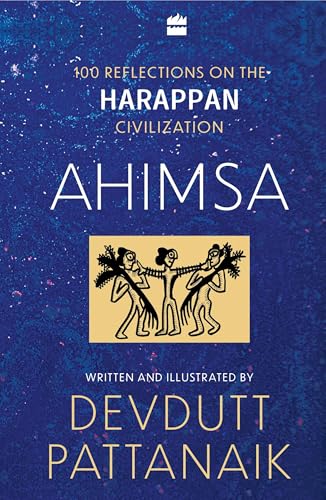
In September 1924, John Marshall, Director General of the Archaeological Survey of India, informed the world about the existence of the Indus (Harappan) some 4,500 years old, as ancient as Mesopotamia, as grand as ancient Egypt, and a part of the Bronze Age trading network. How did the Harappan civilization contribute to later Vedic and Tantrik thought? Did the Harappans follow monastic ideals that later became part of Buddhism and Jainism? Was their script like today's emojis, conveying ideas? Why did they have images of rivalry but no images of war and no images of romance either? Why did the cities disappear while the villages continued to flourish for some time? An eventful century later, Devdutt Pattanaik uses the lens of mythology to reflect on this most mysterious of 'peaceful' civilizations, now spread across geographies in India and Pakistan. A medley of text and illustrations, Ahimsa draws attention to how much Harappan memory persists in our lives today.
Author

Dr. Devdutt Pattanaik (born December 11, 1970) is an Indian physician turned leadership consultant, mythologist and author whose works focus largely on the areas of myth, mythology, and also management. He has written a number of books related to Hindu mythology, including Myth = Mithya: A Handbook of Hindu Mythology, a novel, The Pregnant King, and Jaya: An Illustrated Retelling of the Mahabharata (2010). He is the Chief Belief Officer of Future Group, one of India’s largest retailers, bringing the wisdom of Indian mythology into Indian business, especifically in human resource management. He also writes a column for the newspaper MID DAY. He has also written a novel based on a tale from the Mahabharata titled 'The Pregnant King' published by Penguin Books India